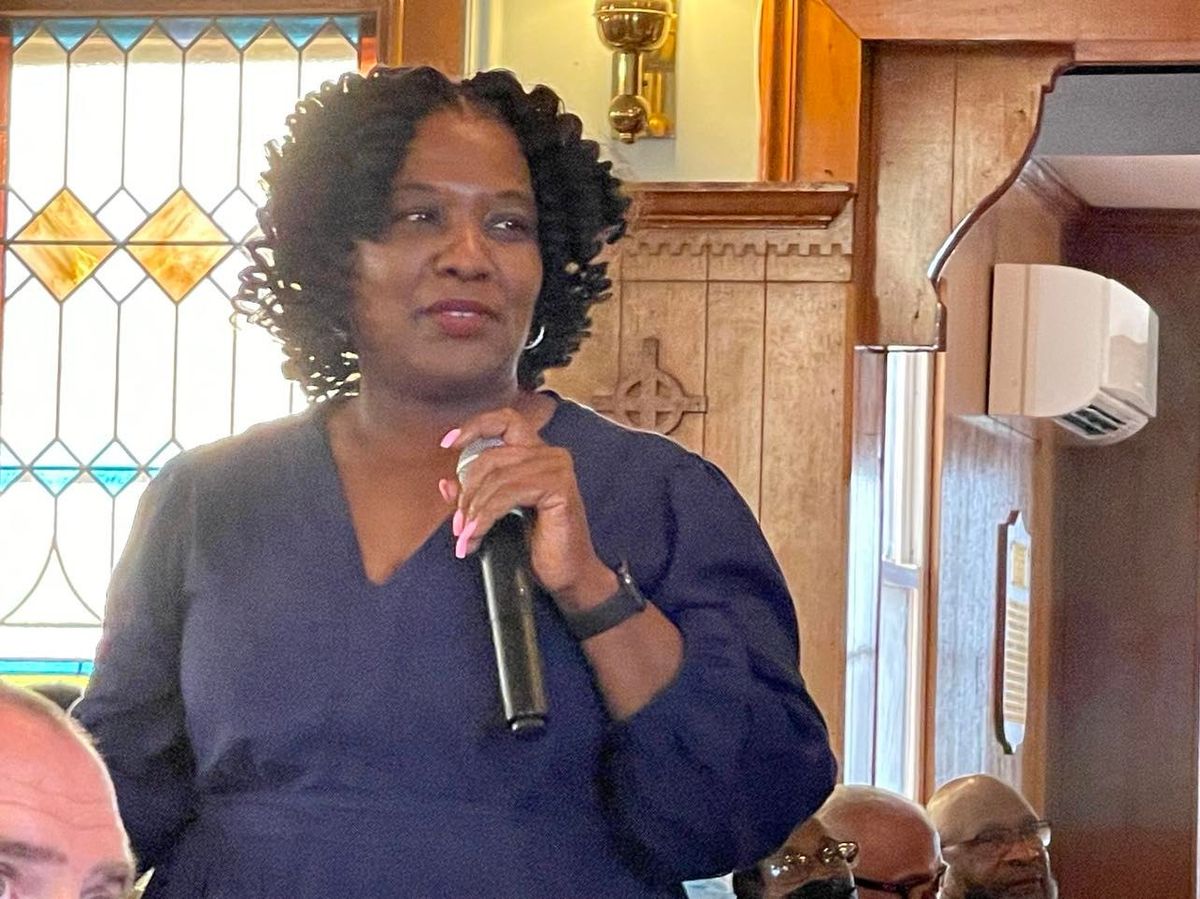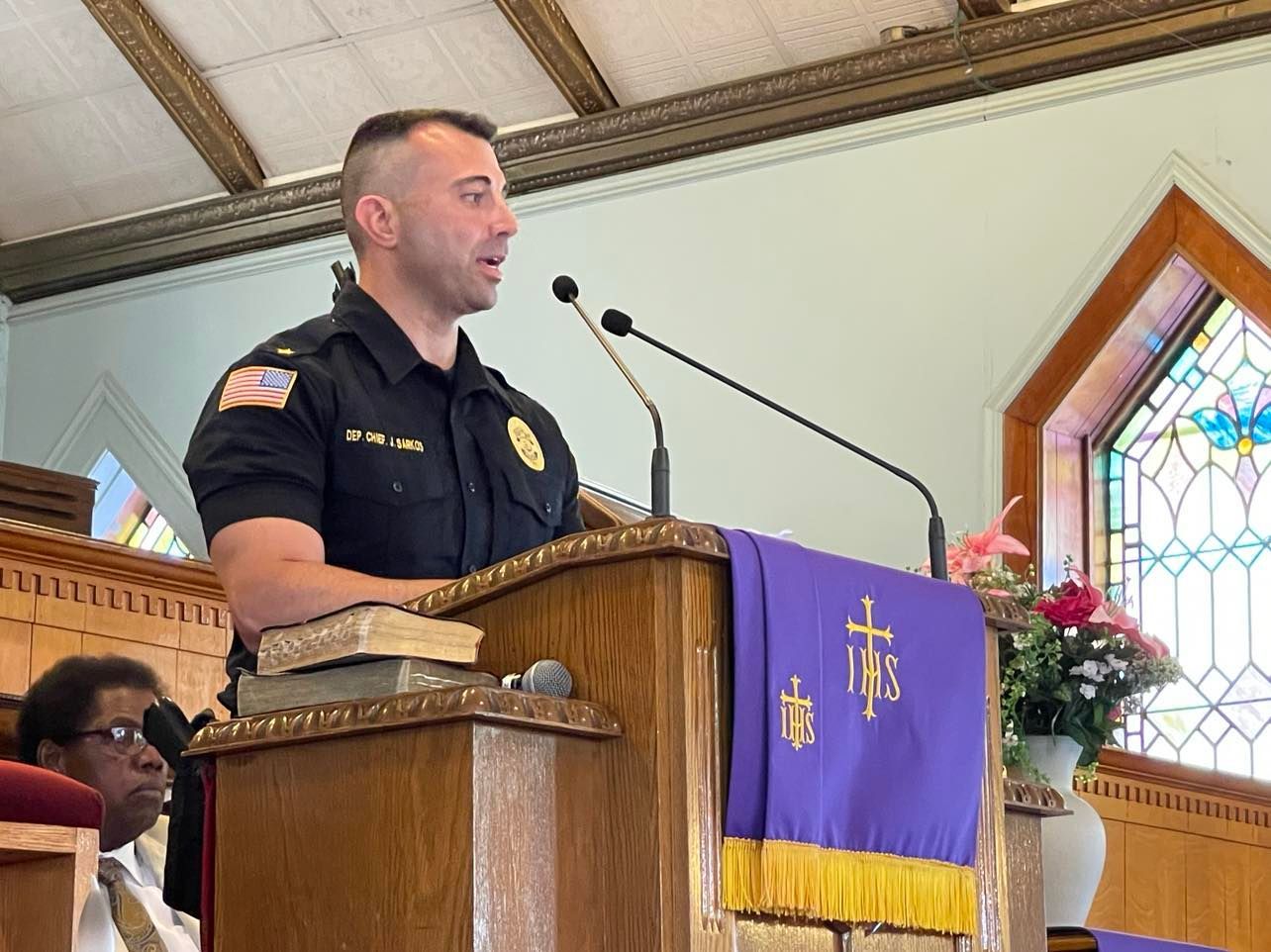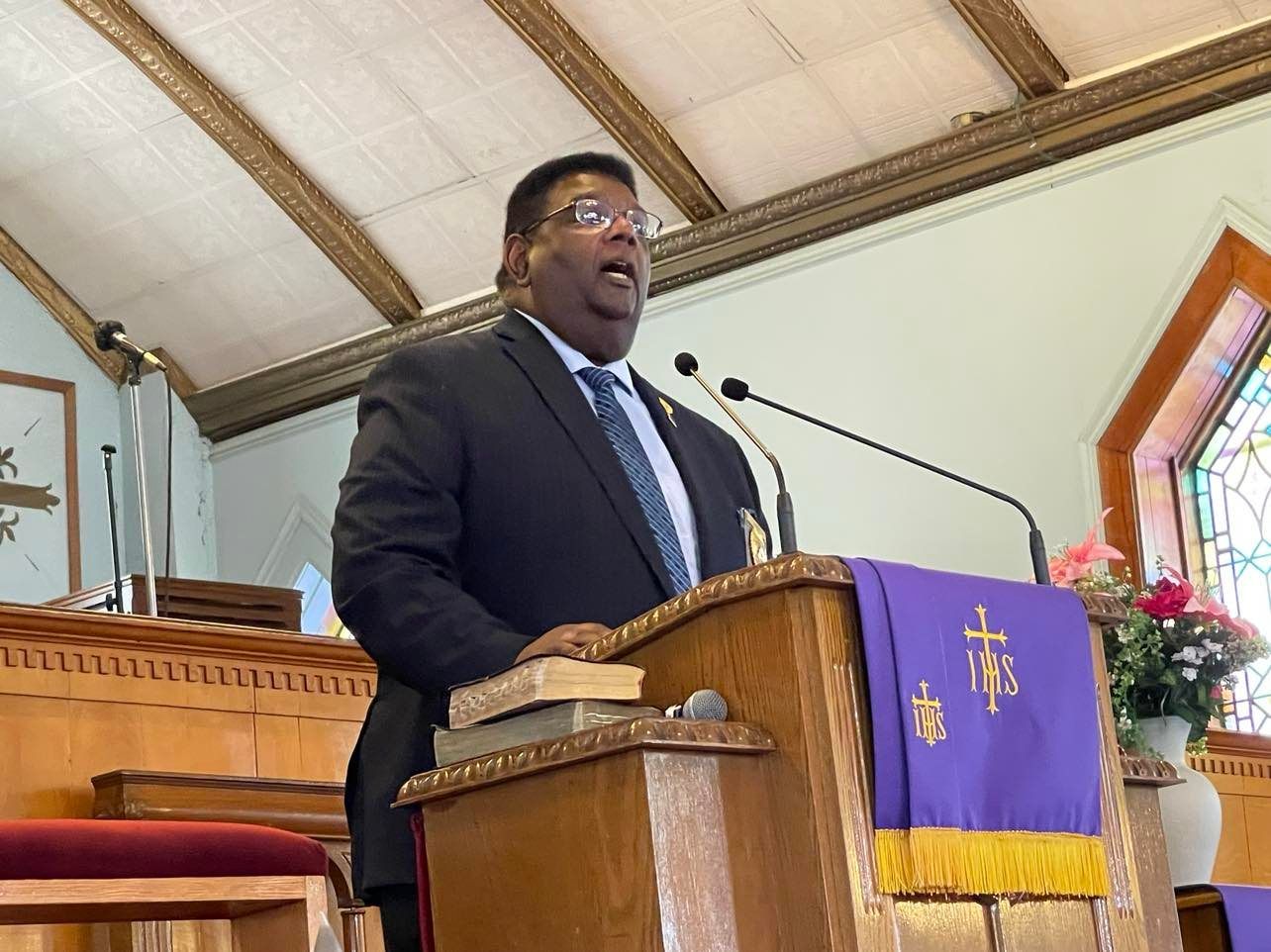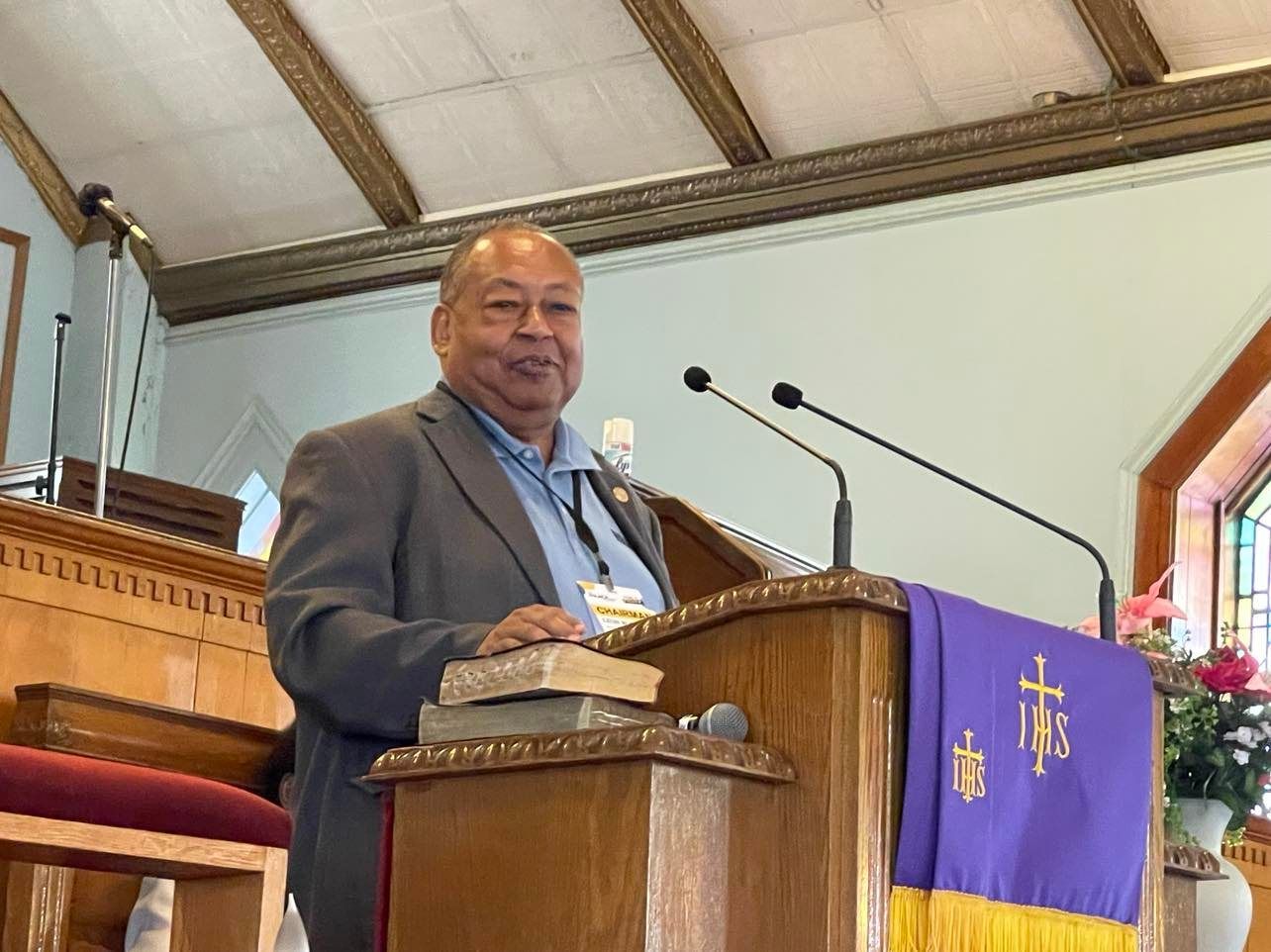NAACP, NOBLE Teach Traffic Stop Etiquette
The National Association for the Advancement of Colored People and the National Organization of Black Law Enforcement Officials hosted a special information session here at St. James African Methodist Episcopal. Church during the 113th annual NAACP Convention.

ATLANTIC CITY — The red and blue lights start flashing behind you. The police car slows down.
Yup.
You’re being pulled over.
What happens next could largely depend on how you interact with the officer making the stop. That’s why the National Association for the Advancement of Colored People and the National Organization of Black Law Enforcement Officials hosted a special information session here at St. James African Methodist Episcopal Church during the 113 th annual NAACP Convention.
“Maintain your composure and conduct yourself in a mature manner,” said Quovella M. Maeweather, the NOBLE New Jersey chapter executive vice president. “Pull over and turn off your vehicle. Turn off devices that may distract you. Place your hands in a position that’s easily visible to the officer.”
Maeweather, who is also public safety director for Franklin Township in Somerset County, said safety is important on both sides. But the public also must understand their rights, she said.
The fourth amendment protects people from search without a warrant and the fifth amendment gives everyone the right to remain silent. But during a traffic stop officers have the right to ask for license, registration, and insurance.
“You do not have to say anything beyond confirming your identification,” Maeweather said.
Maeweather said the top three reasons for traffic stops are speeding, vehicle defects and records checks.
“We don’t just search a vehicle to search a vehicle,” Maeweather said.
She said people should follow similar guidelines when stopped on foot.
People should always remain calm, ask why they are being stopped and get clarity on whether they are a suspect in a crime, she said.
“Avoid any action or language that might create an unpredictable situation,” Maeweather said.
If someone feels they have been treated unfairly, they should contact internal affairs and make a complaint.
“If you feel something is not right, make the complaint. Follow your local guidelines and follow up if you have not been contacted,” Maeweather said. “If you don’t know the name, record the location, date, and time.”

Acting Chief James A. Sarkos, of the Atlantic City Police Department, said the local administration has been at the forefront of inclusion and community relations. To that end, Atlantic city is the ninth most diverse department in the state, was one of the first to implement body cameras and focuses on “procedural justice” by having the officers place a high value on listening and making decisions based on rules, Sarkos said.
“Mutual respect and understanding is our path to a better tomorrow,” said Sarkos.

Bruce DeShields, chief of detectives for the Atlantic County Prosecutor’s Office, said part of the reason people get into trouble is because they ignore their conscience.
“Life is all about decisions,” DeShields said.
Part of the mission of the prosecutor’s office is making sure justice is served fairly, DeShields said.
The Rev. James Coaxum III, pastor of St. James AME Church, said he hosted the information session on Friday July 15 because it was the right thing to do.
“It helps bring together law enforcement and our community,” Coaxum said. “The relationship of church and community has been important to us as a church and to me as a pastor.”

NAACP National Board of Directors Chairman Leon W. Russell said holding such forums helps build understanding between the community and police before tense situations arise.
“We have to be able to talk to each other, not at each other,” said Russell.

